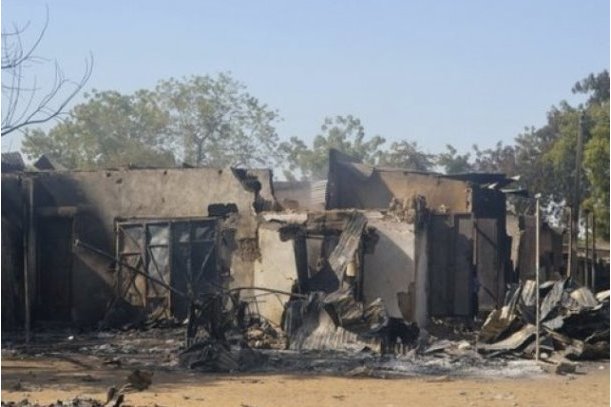Latest News
Nigeria ranks as most terrorised African country – GTI

News Highlight
Boko Haram jihadists and armed Fulani herdsmen accounted for 63 per cent of terror attacks and 88 per cent of terror-related deaths in Nigeria in 2017.
Nigeria has been ranked as Africa’s most terrorised nation by the 2018 Global Terrorism Index (GTI). The GTI report, released by the Australia-based Institute for Economics and Peace (IEP), ranks 138 countries according to how they are impacted by terrorism.
Globally, Nigeria ranked in third position, behind Iraq and Afghanistan. Other countries highly impacted by terrorism are Syria (4th), Pakistan (5th), Somalia (6th), India (7th), Yemen (8th), Egypt (9th), and Philippines (10th). The top 10 most terrorised countries in Africa are Nigeria, Somalia, Egypt, DRC, Libya, South Sudan, CAR and Cameroon.
Dominating terrorism activities in Nigeria are Boko Haram jihadists and armed Fulani herdsmen. Together, they account for 63 per cent of terror attacks and 88 per cent of terror-related deaths in the country in 2017.
Boko Haram was the deadliest terrorist group in 2017, recording an increase in both terrorism deaths and attacks. Deaths increased by 34 per cent to 1,022, while attacks increased by 62 percent to 222. It is also notorious for female and child suicide bombers. Out of the 434 suicide bombers between April 2011 and June 2017, 244 were women.
The Fulani extremists, however, were responsible for 321 deaths and 72 attacks. The report also shows that the third group, Bachama extremists, was responsible for four attacks and 30 deaths in 2017.
Notwithstanding, according to the report, total deaths from terrorism in Nigeria fell to 1,532 in 2017, representing a 16 per cent decrease from the previous year. The decline follows the 63 per cent drop in deaths in the preceding year and a 34 per cent drop in 2015. This highlights the effectiveness of the counter-insurgency operations undertaken in Nigeria and Cameroon, Niger and Chad.
Globally, deaths from terrorism fell for the third consecutive year, after peaking in 2014. Total number of deaths fell by 27 per cent in 2017 to 18,814. The decline is also reflected by countries scores on the GTI, with 94 countries recording improvement compared with 46 that deteriorated.
Alongside the fall in terrorism, the global economic impact of terrorism also fell by 42 percent to $52 billion in 2017. The GTI report shows deaths accounted for 72 percent of the economic impact, with the remainder stemming from GDP losses, property destruction, and non-fatal injuries.
The report, however, notes that the impact of terrorism may be much higher as these figures do not account for the indirect impacts on business, investment and the cost associated with security agencies and countering terrorism.
“IEP’s research finds that conflict and state terror are the principal causes of terrorism – of the 10 countries most impacted by terrorism, all were involved in at least one violent conflict and eight were involved in a major war with at least 1,000 battle deaths,” said Steve Killelea, Executive Chairman of IEP. “These ten countries accounted for 84 per cent of all deaths from terrorism in 2017. When combined with countries with high levels of political terror, the number jumps to 99 percent. Political terror involves extra-judicial killings, torture and imprisonment without trial.”
Founded in 2007, the IEP is a world leading think tank that develops metrics to analyse peace and to quantify its economic value. It does this by developing global and national indices, including the annual Global Peace Index, which calculates the economic cost of violence and understanding positive peace.
Related News
Latest Blogs
- What is most important for Nigeria in 2026
- Restoring asset declaration as a tool of public accountability
- Tackling antibiotic resistance through safer food systems
- Big government, little governance
- What will matter in Nigeria in 2026
Most Popular News
- NDIC pledges support towards financial system stability
- Artificial intelligence can help to reduce youth unemployment in Africa – ...
- FRC Chairman commends NDIC for prompt remittance of operating surplus
- Pan-African nonprofit appoints Newman as Advisory and Executive Boards Chair
- UN adopts new consumer product safety principles
- Dollar slumps as Fed independence comes under fire








